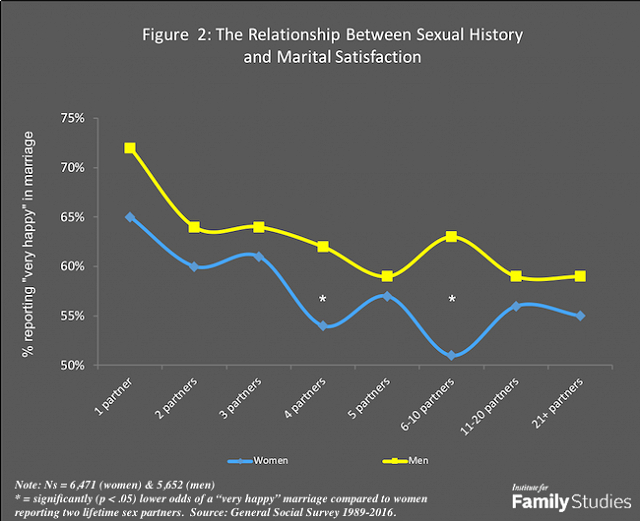Play the field. Sow your wild oats. Get it all “out of your system”. This is the well-worn view of male sexuality (with predictable unfairness the same logic rarely applies to women).
The idea behind this theory boils down to this: young men, it’s believed, have a frankly terrifying amount of sexual energy. In essence: they need to burn some of it off with a variety of partners before they can countenance the prospect of settling down to a respectable life of suburban monogamy. The male libido, as Socrates said, is like being “chained to a madman”. You have to give the chain some slack before the lunatic in question can be securely tethered.
But it turns out that accruing a decent tally of bed-post notches can be bad news for your chances of marital bliss.
Professor Nicholas Wolfinger, a sociologist at the University of Utah, discovered that Americans who have only ever slept with their partners are, in fact, the most likely to report being in a “very happy” marriage.
The lowest odds of marital happiness meanwhile (3 percentage points lower than the one-partner women) belong to women who have had six to 10 sexual partners in their lives. But men’s satisfaction with their marriages also dips after they’ve had more than one partner.

For men, there’s still a dip in marital satisfaction after one partner, but it’s never as low as it gets for women, as Wolfinger’s graph shows. But other studies’ like this also back the idea that marital happiness has the best prospect to flourish between people who’ve only ever bedded each other.
How to explain all this?
Wolfinger suggests people who avoid sex before marriage might simply value marriage more highly, so they feel more satisfied by it. Another idea is that people who got hitched with their purity in tact are happier because they don’t know what they’re missing and so have no basis for comparative evaluation.

Finally, as Wolfinger told The Atlantic, this trend “could reflect personality types that are less conducive to having a happy marriage”. Some people, in other words, may simply be less suited to the strange and unusual demands of married life.
